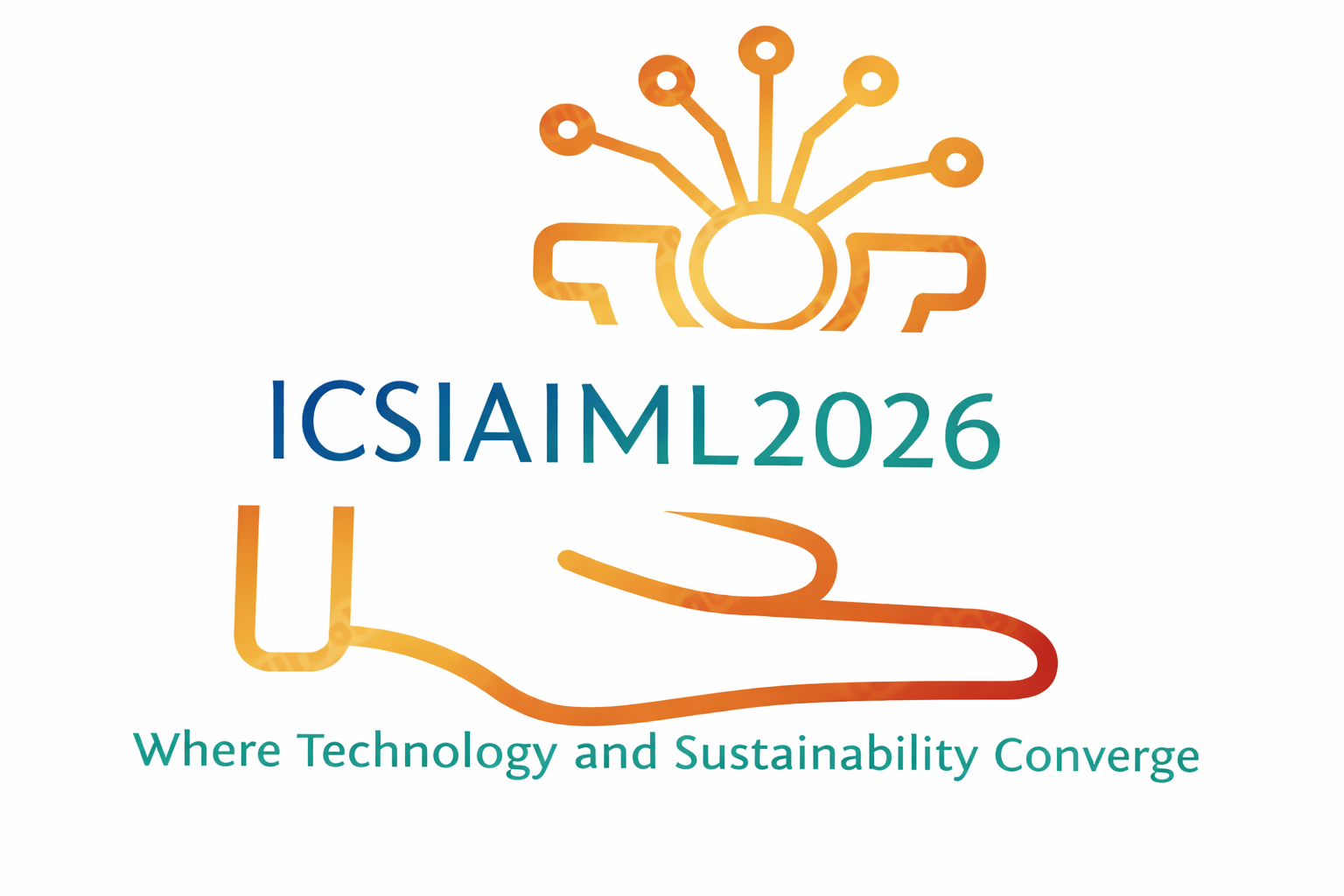Call for Paper
The 2nd ICSIAIML 2026 invites full-length original research papers from academicians, researchers, industry professionals, R&D organizations, government agencies, and research scholars across the globe. The conference serves as a premier platform to present innovations and exchange ideas on how Artificial Intelligence (AI) and Machine Learning (ML) can drive sustainable development and societal impact.
Authors are encouraged to submit high-quality, original, and unpublished research aligned with the conference themes and tracks.
Conference Tracks
Authors are invited to submit manuscripts in (but not limited to) the following tracks:
Focuses on core AI/ML theories, models, and algorithms that enable intelligent and sustainable solutions.
Topics include:
- Machine Learning & Deep Learning
- Explainable and Responsible AI
- Optimization & Reinforcement Learning.
- Federated and Edge AI.
- Data Mining & Intelligent Systems.
Explores AI applications addressing environmental and sustainability challenges.
Topics include:
- Climate change modeling and prediction
- Green and energy-efficient AI
- Renewable energy forecasting.
- Environmental monitoring & protection.
- Circular economy and resource optimization
Covers AI-driven intelligent infrastructure and industrial systems.
Topics include:
- Smart cities and urban sustainability
- Intelligent transportation systems
- IoT and cyber-physical systems
- Digital twins for sustainability
- Sustainable manufacturing & Industry 4.0
Highlights AI solutions for human well-being and social good.
Topics include:
- AI in healthcare and medical imaging
- Public health analytics
- Precision agriculture and food security
- AI for social good
- Ethical, fair, and inclusive AI
- AI for UN Sustainable Development Goals (SDGs)
Types of Submissions:
- Full Research Papers
- Review Papers
- Industry/Case Study Papers
- Student Research Papers
Author Guidelines (Summary):
- Papers must be original and unpublished
- Not under review elsewhere
- Follow the Springer conference template
- Maximum length: 20 pages
- Format: PDF/Word (≤10 MB)
- All fonts embedded
- No document security enabled
Peer Review
2nd ICSIAIML 2026 follows a rigorous double-blind peer review process:
- Plagiarism check (similarity <10%)
- Minimum three expert reviewers
- Evaluation on originality, quality, relevance, and clarity
- No AI contents should be there.
Important Dates
| Paper Submission Deadline | 31 August 2026 |
| Acceptance Notification | Rolling basis |
| Camera-Ready Submission | 1st September – 25th September 2026 |
| Conference Dates | 29–30 October 2026 |
The Microsoft CMT service was used for managing the peer-reviewing process for this conference. This service was provided for free by Microsoft and they bore all expenses, including costs for Azure cloud services as well as for software development and support.


.png)
